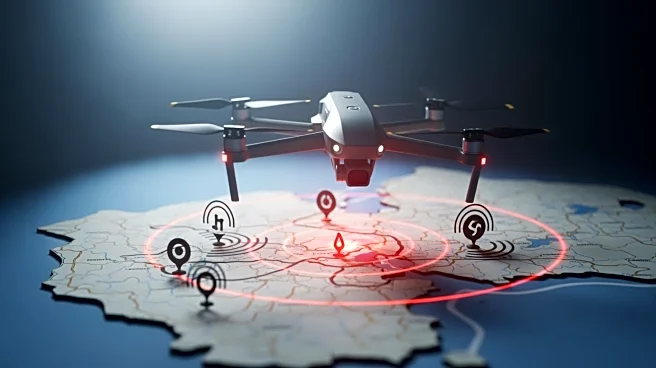What's Happening?
The Israeli Defense Forces (IDF) conducted a strike in the central Gaza Strip targeting a member of the Palestinian Islamic Jihad (PIJ), who was allegedly planning an attack. This operation was carried out after coordination with the United States Central
Command (CENTCOM), according to security sources. The strike was not a formal U.S. request but involved notifying U.S. representatives, including the commander of CENTCOM. Intelligence indicated the target was preparing an imminent terrorist attack on IDF forces, prompting the strike. The operation was routed through multiple levels of Israeli military and political echelons before proceeding. Prime Minister Benjamin Netanyahu emphasized Israel's sovereignty in security matters, stating that Israel determines its own security policies and does not seek approval from international forces.
Why It's Important?
The coordination between the IDF and U.S. CENTCOM highlights the delicate balance of military operations in Gaza during a U.S.-mediated ceasefire. This collaboration underscores the importance of maintaining regional stability and preventing escalation. The involvement of U.S. oversight in Israeli military operations reflects the ongoing diplomatic efforts to manage tensions in the region. The strike's approval process indicates a shift towards more integrated military and diplomatic strategies between the U.S. and Israel, potentially affecting future operations and ceasefire agreements. The situation remains sensitive, with implications for U.S.-Israel relations and broader Middle Eastern geopolitics.
What's Next?
The incident may lead to further diplomatic discussions between the U.S. and Israel regarding military operations in Gaza. The PIJ's denial of the attack plans and accusations against Israel for violating the ceasefire could prompt international mediators to reassess the situation. Continued U.S. involvement in Israeli military decisions may influence future ceasefire negotiations and regional security policies. The IDF's approach to handling threats in Gaza, coupled with U.S. coordination, could set a precedent for future military actions in the region.















